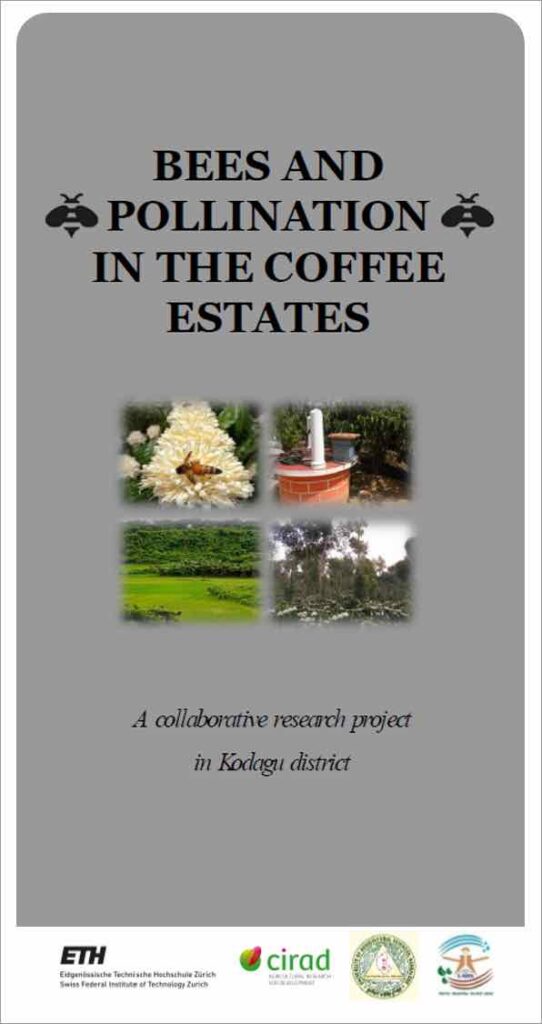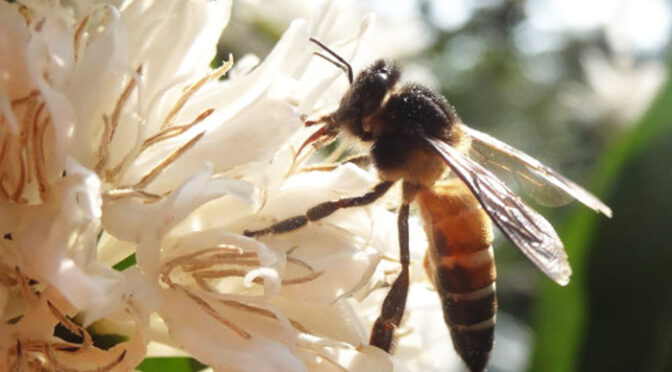Developing sustainable management scenarios
By Charlotte Pavageau
What was the main impact for policy?
Pavageau et al in close cooperation between ETH Zurich and the
Ashoka Trust for Research in Ecology and the Environment (ATREE), India searched the links between pollination service, coffee production and land use in coffee plantations in India.
Land-use allocation has multiple and complex economic and environmental implications. Thus designing optimal land-use is a key challenge for decision-makers and policies aiming at promoting sustainable development for a given region. The results of this study contributed to inform land-use and agricultural policies on the consequences of different collective decision-making scenarios on coffee productivity, economic gain and biodiversity conservation, by using landscape-scale ecosystem services models. This is important for better planning of land-use policy.
What evidence was useful for policymaking?
The study shows which combination of natural resources and land-use type should be favoured at the landscape level and which management practices contribute to maintaining an optimal level of pollination and coffee yield. For instance, conservation of local trees in agroforestry plantations, or better coordination on the dates of irrigation between farmers increase pollination by wild species. It also reaffirms the importance of conserving small forest fragments around plantations, even of small size as long as neighbouring coffee is grown under a diversity of local tree species. Those results show that better integration between agricultural policies, forest policies, land tenure policies are required at the local level. Local institutions that foster exchange and coordination between farmer decisions and forest community management are in particular necessary to reinforce.
What are the outputs for policy and how are they translated?
During the project, local workshops with coffee planters, beekeepers, public officials, local associations, managers from private companies and scientists were organized in Kodagu District, India. These formats are extremely important beyond disseminated the findings of the study. It allows an exchange of knowledge and information between different stakeholders, and discussion on a common vision for the development of the region.

Also, a booklet on bees and pollination in the coffee estates was distributed to coffee farmers of Kodagu, India. It contains advice on how to best manage a plantation to benefit from natural pollination services.
Reference
Pavageau, C., Gaucherel, C., Garcia, C., Ghazoul, J. (2018) Nesting sites of giant honey bees modulated by landscape patterns. Journal of Applied Ecology. doi: 10.1111/1365-2664.13069

Charlotte Pavageau is now programme manager on policy and advocacy at the Biovision Foundation. She supports policy dialogue and policy development on sustainable food system in sub-Saharan Africa. She received a fellowship from PSC and the e European Union’s Seventh FrameworkProgramme, IDP BRIDGES, PITN-GA-2013-608422 to carry out her doctoral thesis in science and policy.

